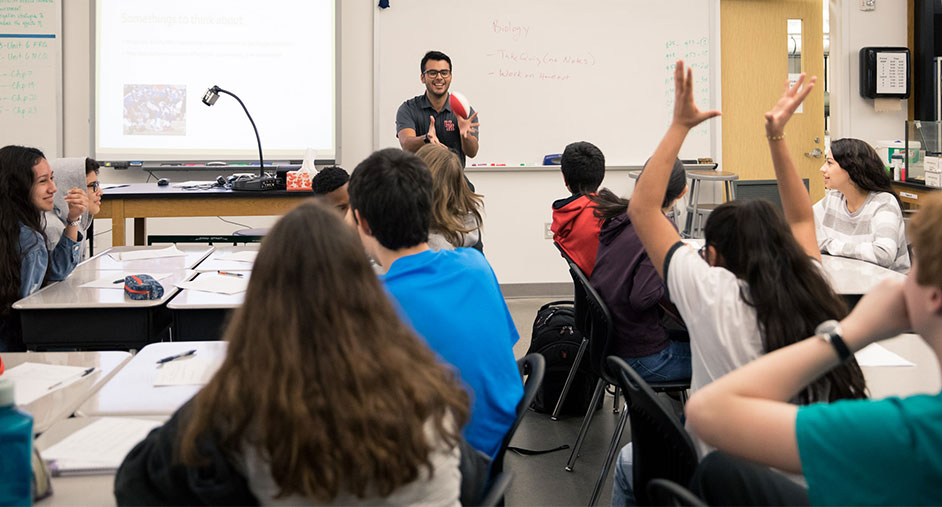teachHOUSTON Program to Train 30 STEM Teachers for High-Need School Districts
Careers in computer and information technology are expected to grow over the next decade, but projections show there won’t be enough teachers to educate these future professionals. The University of Houston’s teachHOUSTON program has received a $1.2 million grant from the National Science Foundation to help address the shortage by training secondary STEM teachers to work in economically disadvantaged high schools in the Greater Houston area.

The new five-year project, Advancing Cultural and Computational Engagement in STEM Scholars (UH-ACCESS), will prepare 30 UH students from varying disciplines to teach computer science, physics and technology at the high school level. The first cohort starts this fall.
teachHOUSTON is a collaborative project of the College of Natural Sciences and Mathematics, the College of Education and local school districts and has produced 350 math and science teachers since its first graduating class in 2009.
“Our goal is to prepare a diverse group of teachers who will inspire students to become the country’s next technologically advanced, highly-skilled workforce,” said Paige Evans, associate director of teachHOUSTON and principal investigator on the project.
According to projections by the United States Bureau of Labor Statistics, computer and information technology occupations will increase 12% by 2028 – faster than the average for all other occupations – translating to nearly 550,000 new jobs.
UH-ACCESS scholars will receive a $12,000 scholarship per academic year for two years, as well as structured support for the first three years of their teaching careers. They will work in the field observing and teaching in partner schools in the Houston, Alvin, Pasadena, Spring Branch and Cy-Fair Independent School Districts. Scholars will also receive mentoring and support from community leaders who will provide education about social justice issues, better preparing them to work with underserved populations.
“We are trying to find potential teachers who already exhibit a sociocultural awareness,” said Evans. “Research has shown that students do better in science, technology, engineering and math if the content is connected to their community and culture.”
UH-ACCESS co-collaborators include Jaspal Subhlok, professor of computer science; Donna Stokes, NSM associate dean of student success and undergraduate affairs and professor in the Department of Physics; Weihang Zhu, associate professor in the Department of Engineering Technology; Conra Gist, associate professor in the College of Education’s Department of Curriculum and Instruction; and Leah McAlister-Shields, lecturer and teachHOUSTON faculty advisor in the Department of Mathematics.
- Sara Tubbs, University Media Relations